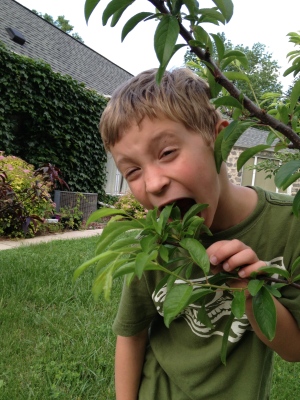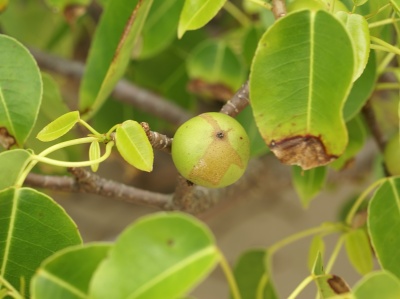“Behold, I have given you every plant yielding seed that is on the face of all the earth, and every tree with seed in its fruit. You shall have them for food.” —Genesis 1:29
Can you imagine going outside when you are hungry and munching on a handful of leaves from any tree or plant? In reality we don’t just pick up any plant outside and place it on our dinner plate. But why?

There are a good variety of tasty things that do grow all around us. We do not eat everything because some of those plants produce chemicals that can harm us if we eat or even touch them. One would not go and grab poison ivy as the chemicals it produces, known as urushiols, would cause a tremendous allergic reaction. As a more drastic example– the manchineel tree or manzanilla de la muerte (little apple of death) is one of the most poisonous fruit trees on earth to humans. Even the sap contains chemicals that cause skin burns and lesions in the digestive tract if eaten.

On store shelves now you will often find products that are labeled “all-natural” or “chemical-free”. However, no physical object on earth is chemical free, and what these manufacturers are really using are some of these plant-based chemicals in their products. They are no less of a chemical than non-plant-based chemicals, and as you can see from the example above, the compounds from the manchineel are all-natural but can be very poisonous. These all-natural chemicals may be derived from a plant. However, they are not “chemical-free”, they are just manufactured by a chemical reaction in a living green plant rather than a chemical reaction in a beaker. Products labeled as “all-natural” may even contain chemicals normally found in nature but that are instead produced in a factory. Those factory-made chemicals are atom-for-atom exactly the same as their green plant-made counterparts.
So why do plants produce these chemicals? Is a tree protecting itself from humans? Well possibly, but scientists believe that many of these chemicals are produced in response to fungi, bacteria and from animals that may eat them such as insects. They protect the plant by preventing the growth of fungi or bacteria or as serving as a toxin to many insect species that may feed on them and may ultimately cause a decline in the plant population. Humans have discovered these properties over the ages and some of these plant chemicals, known as phytochemicals, are now used in various cultures for similar purposes. Many of our spices are extracts from plant parts that have antibacterial chemicals. These spices were used originally to keep food from spoiling over a long journey or a long period of storage.
We have also learned over time that plant chemicals can be beneficial for other purposes. Aspirin for example is derived from salicylic acid, which is found in many if not all plants as a signaling compound that turns “on” or “off” the production of these defensive plant chemicals as well as other plant functions. We use aspirin as an anti-pain medication because it affects our own internal chemical processes in a similar way.
Whether we know it or not, we selectively pick our plants to use and consume based on their chemicals. So next time you see the label “all-natural” remember that really none of those things are “chemical-free” and just because a chemical is produced naturally does not necessarily mean it is “safe”.

“There are some four million different kinds of animals and plants in the world. Four million different solutions to the problems of staying alive.” —David Attenborough

Relevant & amazing story… A major synthetic drug has been found in nature: http://presse-inserm.fr/en/an-analgesic-molecule-discovered-in-its-natural-state-in-africa/9600/